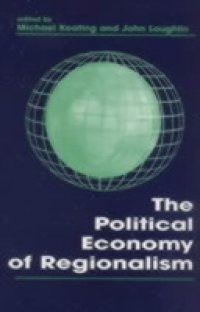Using the new regionalism approach (NRA), this book shows that an array of state, market, civil society as well as external actors are involved in a s series of overlapping, contradictory and sometimes competing forms of regionalism in Southern Africa. We are witnessing the creation of many 'partnerships' between ruling political elites, 'big business' and external actors (such as the World Bank, the EU, USA and Western donors), that seek to take advantage of economic globalization, reinforce privatization and market integration, boost narrow regime and patrimonial interests, and sometimes even the personal interests of involved actors. Only rarely do these forms of regionalism contribute to the poor and disadvantaged, who instead opt out and survive through informal economic regionalism or seek to create regionalisms rooted in civil society.

